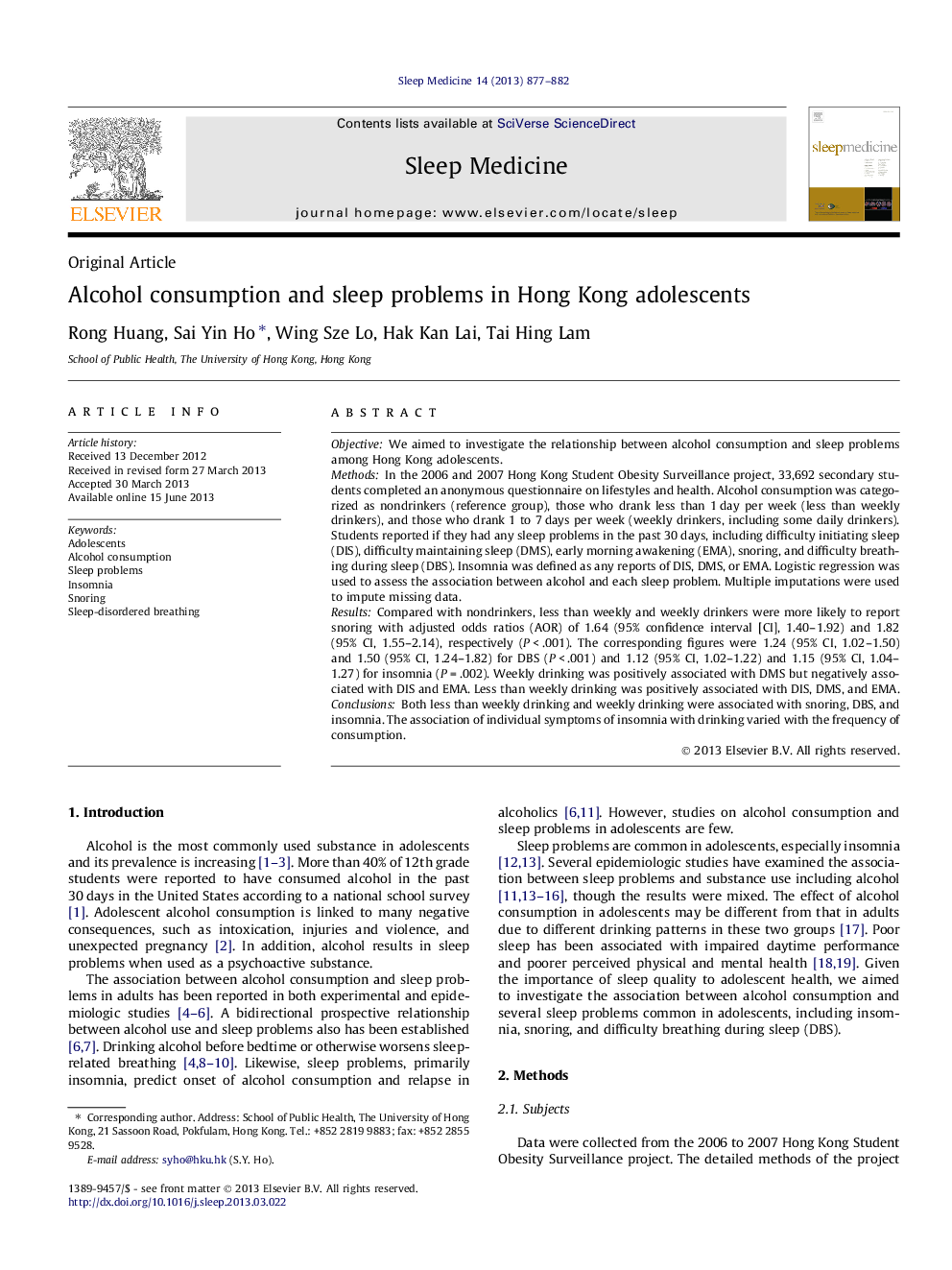| Article ID | Journal | Published Year | Pages | File Type |
|---|---|---|---|---|
| 3176351 | Sleep Medicine | 2013 | 6 Pages |
ObjectiveWe aimed to investigate the relationship between alcohol consumption and sleep problems among Hong Kong adolescents.MethodsIn the 2006 and 2007 Hong Kong Student Obesity Surveillance project, 33,692 secondary students completed an anonymous questionnaire on lifestyles and health. Alcohol consumption was categorized as nondrinkers (reference group), those who drank less than 1 day per week (less than weekly drinkers), and those who drank 1 to 7 days per week (weekly drinkers, including some daily drinkers). Students reported if they had any sleep problems in the past 30 days, including difficulty initiating sleep (DIS), difficulty maintaining sleep (DMS), early morning awakening (EMA), snoring, and difficulty breathing during sleep (DBS). Insomnia was defined as any reports of DIS, DMS, or EMA. Logistic regression was used to assess the association between alcohol and each sleep problem. Multiple imputations were used to impute missing data.ResultsCompared with nondrinkers, less than weekly and weekly drinkers were more likely to report snoring with adjusted odds ratios (AOR) of 1.64 (95% confidence interval [CI], 1.40–1.92) and 1.82 (95% CI, 1.55–2.14), respectively (P < .001). The corresponding figures were 1.24 (95% CI, 1.02–1.50) and 1.50 (95% CI, 1.24–1.82) for DBS (P < .001) and 1.12 (95% CI, 1.02–1.22) and 1.15 (95% CI, 1.04–1.27) for insomnia (P = .002). Weekly drinking was positively associated with DMS but negatively associated with DIS and EMA. Less than weekly drinking was positively associated with DIS, DMS, and EMA.ConclusionsBoth less than weekly drinking and weekly drinking were associated with snoring, DBS, and insomnia. The association of individual symptoms of insomnia with drinking varied with the frequency of consumption.
